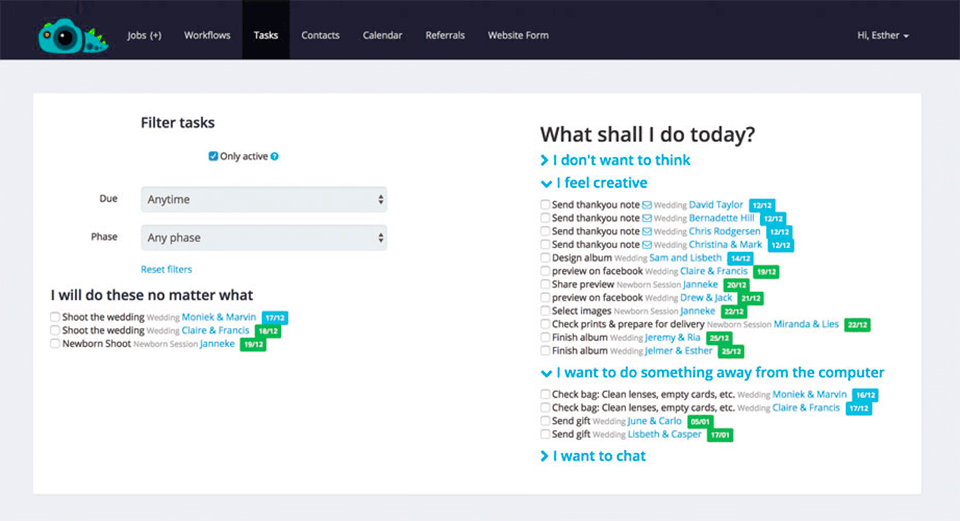Running a successful studio requires more than just talent and creativity. It requires efficient management of various tasks and seamless coordination of different aspects of the business. This is where a Customer Relationship Management (CRM) system proves invaluable. By integrating CRM into your studio management, you not only streamline your processes but also enhance your client relationships and optimize your overall productivity.
CRM enables you to handle vital studio management tasks, such as invoicing and client management, with ease and precision. With its robust invoicing features, you can take control of your financial operations, ensuring accurate billing and timely payments. Gone are the days of sifting through piles of paperwork or struggling with outdated systems. With CRM, you can generate professional invoices, track transactions, and stay on top of your financial health effortlessly.
Moreover, client management becomes a breeze with CRM. Say goodbye to scattered client information and missed opportunities. By centralizing your client data in one place, CRM allows you to access comprehensive profiles, track interactions, and manage projects efficiently. With a holistic view of each client, you can personalize your communication and deliver exceptional service tailored to their specific needs.
In the fast-paced world of studio management, staying organized and efficient can make all the difference in ensuring long-term success. So why not take the leap and embark on a journey to master the art of studio management with CRM? By harnessing its power, you can elevate your studio’s operations, foster stronger client relationships, and unlock a new level of productivity. Let CRM be your secret weapon as you navigate the exciting and dynamic world of the creative studio.
Benefits of CRM for Studio Management
Effective studio management requires a seamless organization of clients, projects, schedules, and financial records. The utilization of Customer Relationship Management (CRM) software can greatly enhance this process, providing numerous benefits to studio owners and managers.
Improved Client Management: CRM systems enable studio owners to maintain comprehensive and up-to-date client profiles. This includes contact information, project history, and preferences. By having this information readily accessible, studios can personalize their interactions, track client inquiries, and provide tailored services, ultimately strengthening client relationships.
Streamlined Invoicing: Invoices are a vital aspect of studio management, but the process can be time-consuming and prone to errors. With a CRM system, studios can automate the invoicing process, generating accurate and professional invoices within moments. This saves significant time and effort, allowing studio managers to focus on other essential tasks.
Efficient Project Tracking: CRM systems offer convenient project management features, allowing studio managers to track the progress of each project. This includes monitoring project deadlines, assigning tasks to team members, and maintaining a collaborative environment. By having a centralized system for project tracking, studios can ensure that projects are completed on time and within budget.
In the next section, we will explore additional aspects of using CRM for studio management, such as effective team collaboration and enhanced data analytics. Stay tuned for more insights on how CRM can revolutionize your studio management practices.
Key Features to Look for in a Studio Management CRM
A good Studio Management CRM should have a set of key features that can make the management of your studio efficient and streamlined. Here are some essential features to look for when choosing a Studio Management CRM:
-
Invoicing Integration: A Studio Management CRM should have seamless integration with invoicing tools. This allows you to generate and send invoices to your clients directly from the CRM system. It saves time and ensures accurate and timely billing for your services.
-
Client Management: Look for a CRM that offers robust client management capabilities. This includes the ability to store and organize client details, history, and communication records in a centralized database. Having a comprehensive view of your clients’ information enables you to provide personalized and efficient service.
-
Calendar and Scheduling: The CRM should have a built-in calendar and scheduling feature. This allows you to manage your studio’s appointments, classes, and events in one place. Look for features like automatic reminders and notifications to help you stay organized and avoid scheduling conflicts.
Remember, these are just a few key features to consider when choosing a Studio Management CRM. Depending on your specific needs, you may also want to look for additional features like task management, reporting and analytics, and integration with other business tools. By selecting a CRM that has the right combination of features for your studio, you can optimize your studio management processes and enhance your overall productivity.
Tips for Implementing CRM in Studio Management
-
Clear Goals and Objectives
Before implementing a CRM system for studio management, it is essential to define clear goals and objectives. Determine what areas of your studio’s operation you aim to improve with CRM, whether it’s streamlining client management, enhancing invoicing processes, or improving overall communication. Having well-defined goals will help you choose the right CRM features and functionalities that align with your studio’s specific needs. -
Comprehensive Data Collection
Successful implementation of CRM in studio management requires thorough data collection. Ensure that your CRM system captures all relevant client information, such as contact details, project specifications, and billing history. This comprehensive data collection will not only enable you to better serve your clients but also streamline your studio’s internal processes, from project scheduling to resource allocation. 
Effective Training and User Adoption
To maximize the benefits of a CRM system, it is vital to provide effective training and encourage user adoption among your studio team. Invest time in educating your staff about the functionalities of the CRM platform and how it can improve their workflows. Encourage them to actively utilize the system and provide feedback on its usability. By fostering a culture of user adoption, you can ensure that CRM becomes an integral part of your studio’s management practices.
Remember, implementing CRM in studio management is not just about choosing the right software. It involves defining goals, collecting comprehensive data, and encouraging user adoption to unleash the full potential of CRM in improving your studio’s operations.





